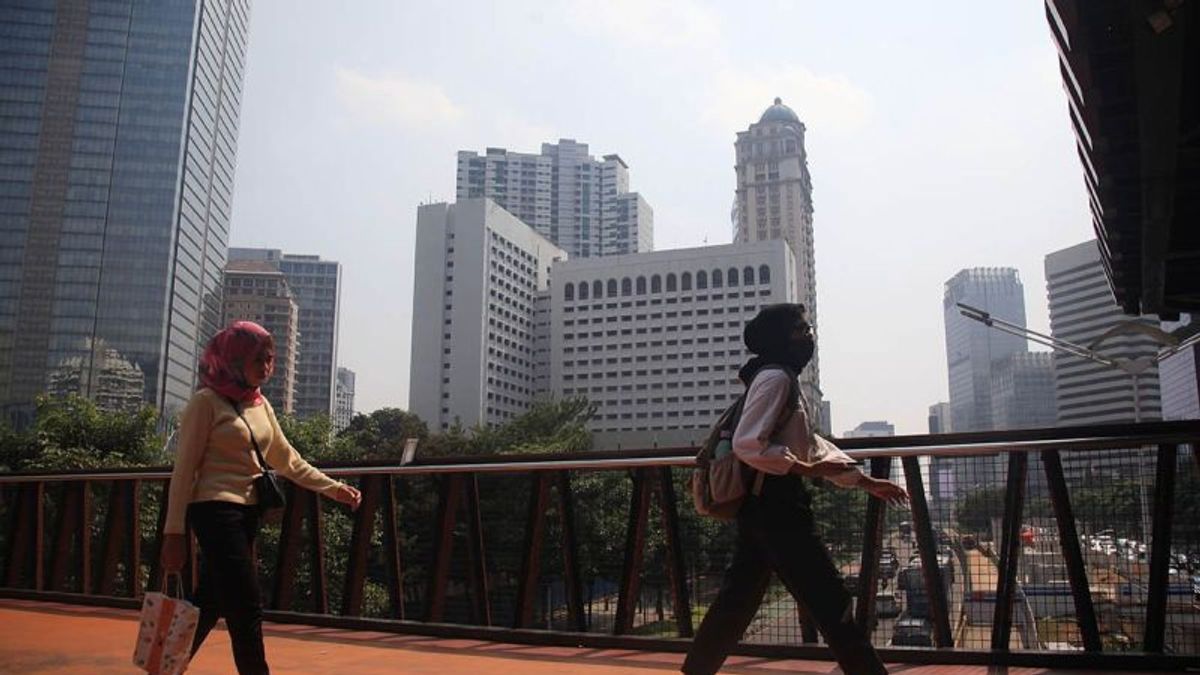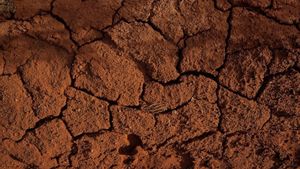JAKARTA - Air pollution still surrounds Jakarta and its surroundings. This pollution has led to an increase in the number of acute respiratory infections (ARI) in the community, as well as the impact of lung and other respiratory diseases.
Chairman of the Honorary Council of the Indonesian Lung Doctors Association Prof. Tjandra Yoga Aditama, referring to the Air Quality Life Index (AQLI) research in India in 2021, said air pollution could have an impact on the life expectancy of the people there.
"The publication on August 29, 2023, is an analysis based on data in 2021, where that year the average annual PM2.5 rate in New Delhi is 126.5 g/m3, meaning that it is 25 times the WHO recommendation limit of 5 g/m3. The number of particulate materials is also high in New Delhi in 2021," Tjandra said as quoted by ANTARA, Thursday, August 31.
Tjandra said the high level of air pollution in 2021 had an impact on reducing the age range of New Delhi's population to 11.9 years shorter, if using safe limits according to the World Health Organization (WHO).
"Another analysis, if you use India's national pollution standard data, the New Delhi population can lose life expectancy for 8.5 years," he said.
The study also presents the conclusion that pollution of particulate matter is the biggest risk that threatens health in India, even exceeding the impact of cardiovascular disease and malternal malnutrition in terms of decreasing life expectancy.
On average, India's population has lost 5.3 years of life expectancy due to particle pollution, while the life expectancy loss rate due to cardiovascular disease is 4.5 years and due to malnal malnutrition and infants is 1.8 years.
The results also show that about 67.4 percent of India's population lives in an air pollution environment that exceeds the air quality standards set by the local government of 40 micrograms per cubic meter.
SEE ALSO:
Not only India, the same research reports also show that in the South Asia region, pollution particles increased 9.7 percent from 2013 to 2021. In India, the increase in particulate matter (PM) 2.5 was 9.5 percent, in Pakistan 8.8 percent and in Bangladesh also increased by 12.4 percent.
The follow-up analysis of the study shows that India's average annual particle pollution increased 67.7 percent from 1998 to 2021. This further increased the reduction in the average life expectancy rate by 2.3 years.
Regarding studies in India, he believes it is a good thing if AQLI research can be conducted in Indonesia to find out for sure whether there is an impact of air pollution on the life expectancy here.
"And if there is, how much loss of life is. This research needs to be done and started from now on, so that in time we will get valid and reliable scientific data. Hopefully the relevant parties will immediately take the right steps," said Tjandra.
The English, Chinese, Japanese, Arabic, and French versions are automatically generated by the AI. So there may still be inaccuracies in translating, please always see Indonesian as our main language. (system supported by DigitalSiber.id)













